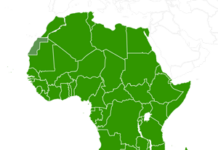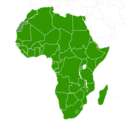 Many studies have shown the disparate impact of the COVID-19 pandemic on African Americans. Blacks make up 13 percent of the U.S. population but over 33 percent of the patients admitted to hospitals with the COVID-19 virus. Black men were up to six times more likely to die from COVID complications than White men. Black women were up to four times more likely to die of COVID-19 than White men. Black undergraduate enrollments were down 8.8 percent in the spring 2021 semester compared to a year earlier, a drop far in excess of the rates for Whites. Some 7.2 percent of Black undergraduates said they withdrew from their college or university, more than double the rate for Whites.
Many studies have shown the disparate impact of the COVID-19 pandemic on African Americans. Blacks make up 13 percent of the U.S. population but over 33 percent of the patients admitted to hospitals with the COVID-19 virus. Black men were up to six times more likely to die from COVID complications than White men. Black women were up to four times more likely to die of COVID-19 than White men. Black undergraduate enrollments were down 8.8 percent in the spring 2021 semester compared to a year earlier, a drop far in excess of the rates for Whites. Some 7.2 percent of Black undergraduates said they withdrew from their college or university, more than double the rate for Whites.
During the pandemic, Whites were more likely than Blacks to hold jobs where they could work from home. A new report finds that this racial discrepancy had dire effects.
While Americans drove less in 2020 due to the pandemic, National Highway Traffic Safety Bureau data shows that 38,680 people died in motor vehicle traffic crashes — the largest number of fatalities since 2007. This is despite the fact there was a 13.2 percent reduction in overall mileage driven by Americans from the previous year due to the pandemic. The data showed that the main behaviors that drove this increase included impaired driving, speeding, and failure to wear a seat belt. With fewer cars on the road, people drive faster. And as alcohol use surged during the pandemic, an incresed level of impaired driving undoutedly occurred.
While overall deaths relating to motor vehicle crashes increased by 7.2 percent in 2020, African American deaths increased by 23 percent. The fact that Blacks were less likely to be able to work at home during the pandemic was a contributing factor.
“Last year’s road fatalities and the racial disparities reflected in them are unacceptable” said Pete Butijeg, the U.S. Secretary of Transportation. “This reflects a wider pattern of inequality in our country.”










